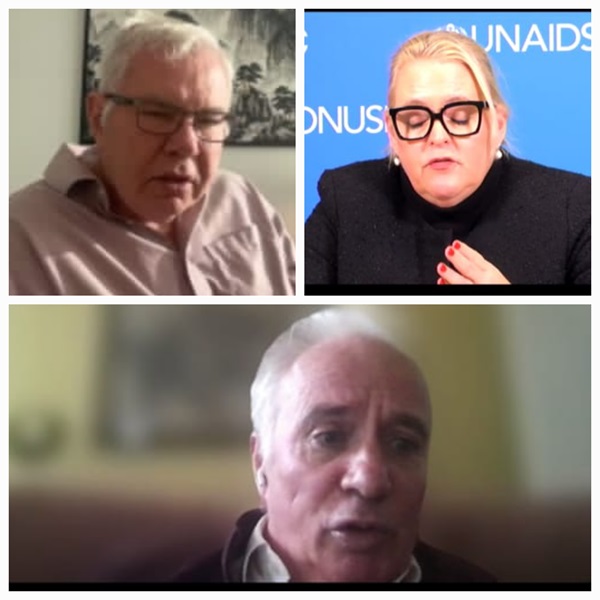
Global health leaders gathered on Monday during a media webinar organised by the Global Fund to commemorate 2024 World AIDS Day, emphasising the need for sustained funding, regional manufacturing and innovative solutions to accelerate progress in the fight against HIV/AIDS.
Lead of the U.S. President’s Emergency Plan for AIDS Relief (PEPFAR), Dr. John Nkengasong called for sustained funding and regional manufacturing to combat HIV/AIDS effectively. Nkengasong stressed the importance of locally produced HIV-related products, particularly rapid HIV tests made in Africa. “We strongly support regional manufacturing. If there’s a made-in-Africa rapid test for HIV, we will purchase up to 15 million units,” he stated. This move aligns with PEPFAR’s strategy to stimulate local production and foster sustainable solutions across Africa.
Nkengasong also highlighted the significant funding required to continue progress. He pointed to the 2022 replenishment meeting, where President Biden raised $15.7 billion and expressed concern about securing similar funding in 2025. Despite challenges, he emphasised the need for robust governance, domestic financing and global collaboration to achieve health goals by 2030.
Deputy executive director at UNAIDS, Ms. Christine Stegling addressed financial barriers hindering health progress, particularly in sub-Saharan Africa, where countries are spending three times more on debt servicing than on healthcare. Stegling called for debt relief, affordable financing, and enhanced revenue collection, as well as global solidarity to address health system gaps, especially for marginalised groups.
Executive director of the Global Fund, Mr. Peter Sands stressed the need for continued innovation and financial support. He highlighted advancements such as long-acting injectable PrEP and the vaginal ring, which could significantly reduce HIV infections. However, Sands warned that without sustainable financing mechanisms, progress could be lost. He emphasised the integration of public and private funding to bridge healthcare gaps and ease pressure on public resources.
Prof. Dean Jamison, Emeritus Professor at the University of California, stressed the importance of data-driven, targeted interventions. “By focusing on the most vulnerable populations, we can maximise impact and ensure efficient use of resources,” he said.
Experts collectively called for urgent action, innovative solutions, and sustainable financing to close gaps and achieve the 2030 global targets for ending HIV/AIDS. World AIDS Day, observed annually on December 1st, continues to raise awareness, show support for people living with HIV, and remember those lost to AIDS-related illnesses. The global initiative encourages individuals, communities and governments to take action in the fight against HIV/AIDS.

